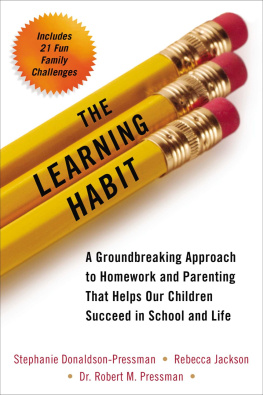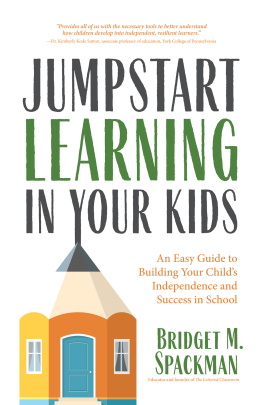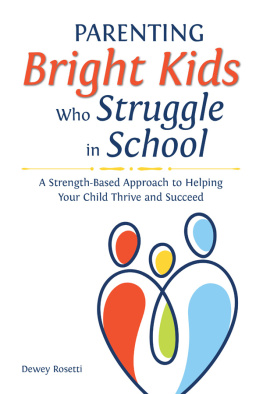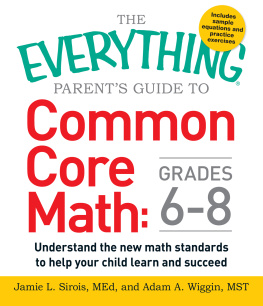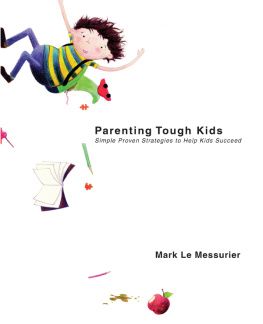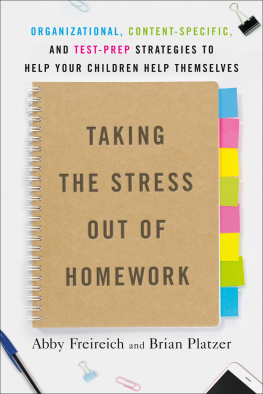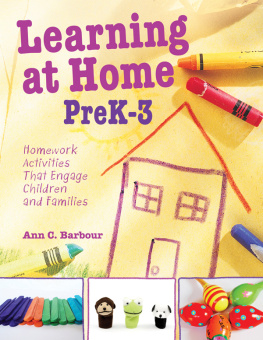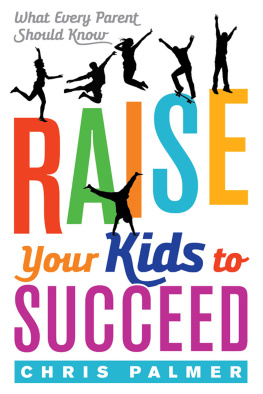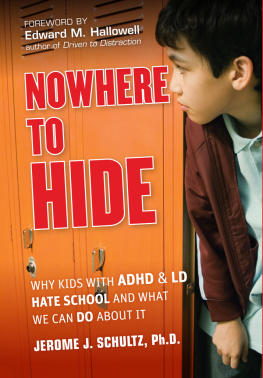A PERIGEE BOOK
Published by the Penguin Group
Penguin Group (USA) LLC
375 Hudson Street, New York, New York 10014

USA Canada UK Ireland Australia New Zealand India South Africa China
penguin.com
A Penguin Random House Company
Copyright 2014 by Good Parent, Inc.
Penguin supports copyright. Copyright fuels creativity, encourages diverse voices, promotes free speech, and creates a vibrant culture. Thank you for buying an authorized edition of this book and for complying with copyright laws by not reproducing, scanning, or distributing any part of it in any form without permission. You are supporting writers and allowing Penguin to continue to publish books for every reader.
PERIGEE is a registered trademark of Penguin Group (USA) LLC.
The P design is a trademark belonging to Penguin Group (USA) LLC.
Library of Congress Cataloging-in-Publication Data
Donaldson-Pressman, Stephanie.
The learning habit : a groundbreaking approach to homework and parenting that helps our children succeed in school and life / Stephanie Donaldson-Pressman, Rebecca Jackson, Robert Pressman.
p. cm.
ISBN 978-0-698-13925-1
1. Homework. 2. Study skills. 3. Parenting. 4. Families. I. Jackson, Rebecca (Rebecca P.) II. Pressman, Robert M. III. Title.
LB1048.D66 2014
371.30281dc23 2014011124
First edition: September 2014
While the author has made every effort to provide accurate telephone numbers, Internet addresses, and other contact information at the time of publication, neither the publisher nor the author assumes any responsibility for errors, or for changes that occur after publication. Further, the publisher does not have any control over and does not assume any responsibility for author or third-party websites or their content.
Most Perigee books are available at special quantity discounts for bulk purchases for sales promotions, premiums, fund-raising, or educational use. Special books, or book excerpts, can also be created to fit specific needs. For details, write: Special.Markets@us.penguingroup.com.
Version_1
For our dear friend, Richard
CONTENTS
INTRODUCTION
This book is written by three researchers who are also parents. The impetus for our work and our research is our unwavering belief that parenting is our most important job. While being parents provided the motivation for this book, our other jobs provided the material. We are all clinicians who work with children and families.
There is something else about this book that makes it unique: It is based on the largest survey of family routines ever conducted. The Learning Habit Studies were a 3-year project, which involved both traditional paper research studies, interviews, and a groundbreaking online research study that surveyed nearly 50,000 parents in all 50 U.S. states. Conducted in the fall of 2013, the findings are both conclusive and provocative. The recommendations we make are rooted in science, clinical experience, and parent and teacher interviews.
Stephanie Donaldson-Pressman is the clinical director of the New England Center for Pediatric Psychology (NECPP) and a bestselling author; she works with parents and children, both independently and in groups. Rebecca Jacksons work as a psychometrist involves testing children for learning disabilities, cognitive deficits, and psychological disorders. Because her overstuffed suitcase on wheels is brimming with all kinds of fascinating tests and gadgets, her children refer to her as the kid detective. Dr. Robert M. Pressman is the research director of the NECPP. He was the lead researcher for our three collaborative studies, conducted with NECPP, Brown Universitys Alpert Medical School, and Childrens National Medical Center; Rhode Island Colleges Psychology Department also participated in the first two studies. The findings from these studies provided significant new data about the habits, routines, and challenges of families living in this digital age. As a clinical psychologist, Dr. Pressman also works with children and their families.
We are all trained observers, whose jobs and habits are to write about what we see. This book is the result of not only research studies but hundreds of interviews and thousands of hours of clinical observation.
WHATS HAPPENING IN OUR HOUSE?
Over the last few years, we have seen dramatic changes in the educational landscape. Homework, once considered an adjunct to classroom teaching, has become a central piece of the educational processand an important component of students grades. The integration of technology and homework, via online teaching tools and textbooks, has further complicated the process, as the line between educational and recreational media consumption becomes increasingly blurred. More and more nonessential school programs are being cut. The very activities that enriched our lives and provided us with opportunities in athletics and the arts are being eliminated. Teachers are being forced to teach to the (mandated) tests rather than challenging their students, stimulating their thinking, or creating pride in simply learning something new. Brightly colored textbooks and teaching manuals filled with illustrations have become digitalized; while this sounds exciting in theory, it often translates into nondescript black-and-white photocopies of the material being used in classrooms and sent home in the form of worksheetsso that all students can participate. Despite the focus on mandated tests, we are graduating children who lack the skills to survive, much less thrive, in college. Once first in the world in college-graduated students, the United States is now 10th.simply do not have the confidence, study skills, or learning habits necessary to handle the work and challenges independent collegiate living entails.
Technology has also become an ever-present influence on our lives. Our children have the benefit of instant communication and easy access to information. That is a wonderful thingexcept when its not. What we observe are children who can relate to screens with ease, but have few social or communication skills; kids who can play video games for hours, but cant read a book for longer than 10 minutes; kids who can text and tweet, but cant focus on a challenging math problem or make sense of a few paragraphs in a history book. Its boring! they cry. And compared to the instant gratification of video games, texting, and social media, it probably is.
Homework used to take 30 minutesat mostto create special projects, finish up a few math problems, or prepare for a spelling test. Kids would simply scan the chapters and answer the assigned questions during study hall or before classfiendishly scribbling before the teacher walked in! Not anymore. Today, homework can take several (stressful) hours a day. Digital homework assignments and online research and tutorials are now the norm; yet parents are given little to no guidance on how to help their children integrate these tools into their homework routines for maximum benefit. Love it or hate it, technology-based homework is here to stay.
The focus on test scores has also made

